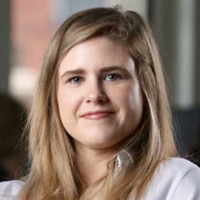Tech and relationships: Forgetting friends’ life milestones? There’s an app for that


Forgetting friends' birthdays might be a thing of the past. Photo: Getty
A few years ago, Liana Kerr, 38, realised that trying to remember all those little things that keep relationships going was making her anxious.
Despite being busy with both work and family, the writer and busy mum of two wanted to make sure that no birthday and get-well cards would go unsent, and that people she cared about would not feel slighted by lack of contact.
“While I always want to make sure I don’t forget things, the reality is that often I put things off to the last minute and then forget them,” Ms Kerr said.
Instead of killing herself remembering everyone’s special moments, she decided to outsource the job to technology – more specially, a type of technology that’s called a personal CRM, short for “customer relationship management”.
“I’ve been trialling these types of relationship management apps for a while before settling on UpHabit earlier this year,” Ms Kerr said.
“I’ve noticed that, in this time, I’ve been more diligent in keeping in contact with people … such as sending out postcards to friends and relatives during this sheltering period”.

CRM technology is being used to help people keep in touch. Photo: Getty
Ms Kerr is far from alone. As lives get busier and we move around more, losing track of important relationships is often an inevitable consequence of our increasingly fragmented lives.
When this happened to Neil Wainwright back in 2016, he didn’t just want to give up. The California-based entrepreneur had just sold his business and realised that the friends and connections he’d made while building the company had mostly disappeared.
“I realised that I’d lost a lot of important connections in my life, ones that had helped me grow and develop as an individual and as a professional,” Mr Wainwright said.
I felt there had to be a better way to keep track of and stay in touch with my network than what I had.”
So he created UpHabit, joining the quiet explosion of a little-known market which promises to help people better manage their personal and professional relationships with the use of built-for-purpose apps.
Based on customer relationship management software (or CRM) – originally used by companies to keep track of all the ways an individual customer interacts with a business, and of systematically maintaining contact with that customer over years – these new apps draw on the same principles but apply them to more intimate relationships with friends, relatives, colleagues and acquaintances.
Simply put, they remind users to reach out to friends, offer advice and push notifications for maintaining relationships (a simple ‘how are you?’ can go a long way, they say).
All apps rely on users to input data about the people they want to keep in contact with. Your friend just had a baby? There’s a space to fill in their name and gender.
Or what about if you want to remember what you spoke about the last time you chatted with a former colleague? Or perhaps you want to follow up with a relative who has just applied for a new job, but simply don’t have the brainspace left? Well, here’s your solution.
“It’s like keeping an electronic social diary,” says co-founder of another personal CRM – the Social Contacts Journal – Wauter Bron.

CRM software can help you keep track of details in your friends’ lives. Photo: Getty
“Our app has two main functions: to keep some detailed information about friends (such as their dietary preferences, clothing size, blood type or names of children); and to help users keep track of the moments they spend together with others, such as meeting for coffee, dinner etc,” Mr Bron said.
It helps people keep in contact with each other even as they move houses, jobs, cities or even countries.”
But is it true friendship when you have to get a computer to prompt you to reach out to people? And what does it mean to never have to make the effort to remember a friend’s child’s name or recall what you last spoke about?
Professor of Psychiatry at The Alfred and Monash University, Dr Jayashri Kulkarni, warns that digitising our entire lives – and relationships – may be detracting from what makes us fundamentally human.
As issues and relationship-building is being transferred to an online world, what’s happening is a dissociation of responsibilities or feelings from previous contacts,” Dr Kulkarni said.
“Having to be reminded of the last conversation you had with someone to appear interested in them contributes to the development of a pseudo-self, an unreal version of who you are, because if that last conversation was memorable to you it would remain so in your mind.”
Professor Kulkarni said that while everyone could do with reminders of friends’ birthdays, establishing and continuing relationships based on information input into an app is an “awkward basis on which to build a true relationship”.
It’s only when people are their real selves that enduring relationships are formed,” she said.
Program Director of Code Like a Girl, a member of the Australian Privacy Foundation, Samantha Floreani, also believes that the solution to building better friendships is not more tech, but less.

Critics warn against digitising our social relationships. Photo: Getty
“Call me old fashioned, but I’d be pretty bummed to find out that a friend had not come up with an idea for my birthday present, but had been recommended to buy something for me through an algorithm to which they had handed over a bunch of personal information (mine as well as theirs),” she said.
There are also privacy concerns; despite most of these apps stating they will not collect data or store it unless the users allow it, privacy experts believe it’s not that simple.
“The overarching issue I have with this kind of thing is that by introducing data-hungry technology into every little part of our lives, the intimate and the mundane alike, it is another step towards completely normalising surveillance,” Ms Floreani said.
The other issue this raises for me is: are people asking their friends’ consent to share their personal information? I doubt it.
“Depending on how much they provide … it could be pretty harmful if there were to be a breach.”
Privacy expert and Visiting Professor at ANU College of Engineering and Computer Science, Dr Roger Clarke, adds that, “at a quick glance of some of these app, the privacy policy is silent about personal data that relates to individuals other than the user, i.e: nothing in here is relevant to the personal data of other parties that they tip into the corporation’s database.”
As technology encroaches into more aspects of personal space, it’s not surprising that we’ve ended up digitising our intimate relationships, too.
At the end of the day, personal CRMs make up a very small part of the technology space, with individual apps clocking only a few thousands users each (UpHabit has more than 13,000). And while some people may want to optimise their friendships, it’s more likely that most users just want to be better at being friends: as Ms Kerr says, most people who receive a postcard from her during this difficult time are really happy.
“For me that makes it all worth it: it’s easy to imagine being a little kid, stuck at home, and then to get mail addressed to you – it’s a big deal!” she said.








